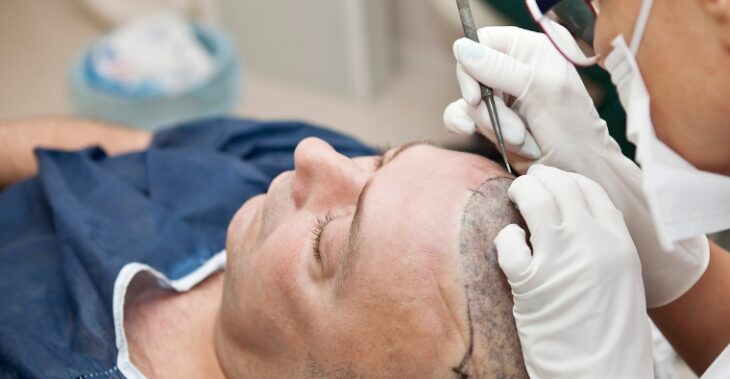
What Is the Ideal Time to Undergo Hair Transplant Surgery?
Introduction:
Deciding to undergo hair transplant surgery is a significant step in addressing hair loss concerns. The timing of this procedure can greatly influence its success and overall outcome. Here’s a guide to help you determine the ideal time for hair transplant surgery, ensuring you achieve the best possible results.
Understanding Hair Transplant Surgery:
Hair transplant surgery involves moving hair follicles from a part of the body known as the ‘donor site’ to a bald or balding part of the body called the ‘recipient site.’ It’s a common procedure for treating male pattern baldness but can also be used to restore eyelashes, eyebrows, beard hair, and to fill in scars caused by accidents or surgeries.
Factors to Consider When Timing Your Hair Transplant:
1) Age: While there’s no specific age limit for hair transplant surgery, it’s generally advised for individuals over 25. Younger patients might experience progressive hair loss, which could affect the long-term results of the surgery. Surgeons often prefer patients to have a more stable pattern of hair loss.
2) Stage of Hair Loss: The Norwood Scale is a helpful tool to determine the extent of male pattern baldness. Most surgeons recommend undergoing the procedure when hair loss is more noticeable, typically stages 3 to 5 on the Norwood Scale. This helps in achieving a more natural and fuller look.
3) Health Condition: Your overall health plays a crucial role in the success of hair transplant surgery. Conditions like diabetes, high blood pressure, or autoimmune diseases need to be well-managed. Additionally, being in good physical health can aid in quicker recovery and better outcomes.
4) Seasonal Considerations: Some people prefer undergoing hair transplant surgery in the cooler months. Colder weather can reduce the risk of sweating, irritating the scalp, and affecting the healing process. Moreover, patients might find it easier to avoid sun exposure, which is essential for proper healing.
5) Downtime and Recovery: Hair transplant surgery requires some downtime. If you have a busy schedule, it’s important to consider when you can take time off for the procedure and recovery. Most people need about a week off work, but it can vary based on the extent of the surgery and individual healing rates.
6) Personal and Professional Commitments: Planning around significant life events or professional commitments is essential. Ensure that you schedule your surgery at a time when you can afford to take some rest without any major disruptions to your personal or professional life.
The Best Time for Hair Transplant Surgery:
Ultimately, the ideal time for hair transplant surgery varies for each individual. However, the general consensus among experts suggests that the best time is when:
– Hair loss has stabilized: This typically occurs after the age of 25.
– You are in good health: Both physically and mentally prepared for the surgery and recovery.
– You have enough time to recover: Without major commitments or activities that could hinder the healing process.
Conclusion:
Hair transplant surgery can be life-changing, boosting confidence and improving overall appearance. By considering factors like age, stage of hair loss, health conditions, seasonal preferences, and personal commitments, you can determine the best time to undergo this procedure.
Consulting with a qualified and experienced surgeon Dr. Vinod Sonawane will provide personalized advice and ensure you achieve the best results possible.

